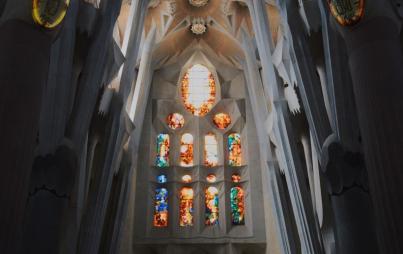Religion & Feminism
Religion & Feminism
The world is eager to position feminism and religion as mutually exclusive practices, but we don't really buy that. If 85% of the world is religious, some of those people are bound to also be feminists! Many of them, in fact, would cite their religion as the reason for their politics, and vice versa. This week we'll be sharing stories from a few of them, everything from atheistic Judaism to Evangelical pro-choice politics.
I spent nine years attending Catholic School.
I wasn’t always a witch. Or a feminist.
In my rebel Catholicism, and the Catholicism that I see so many other Latinx people practice, faith and cynicism are dancing partners that invent their own steps.
For me, feminism felt like finding a beautiful shoe in the wrong size. No matter how much I strained, it never seemed to be a perfect fit. I found my size in womanism.
A man who loves Jesus, believes in waiting for sex, and cares about intersectional feminism? That’s hard to find in Evangelicalism (although admittedly easier in an urban environment). And to find a guy who cares about intersectional feminism and also prioritizes faith? That’s not a snap either.
In my youth, our church was a place of liberal political pride for me. Jesus was a role model for helping others. The man who sexually abused me also spoke eloquently of Christian generosity. He welcomed draft resisters to the church during the Vietnam War. He was an intellectual who introduced me to Virginia Wolf, even as he seemed to feel entitled to sexual access to all women — and children who looked like women, like me.
The through line of my life has been the tension caused by my father believing that I should “fall in line” and defer to his patriarchal authority. Nowhere is this more evident than in the ways that he cannot tolerate our spiritual differences.
This past fall, I decided to stop worrying about the absence of my belief and allow myself the communal experience of prayer. I enjoy it, not because I believe in God, but because I enjoy the ritual.
In Sufism, one of the central doctrines is non-judgment of anyone based on their gender, race, religion, or ethnicity. This is grounded in the concept of Divine Unity. If everything is a reflection of the Divine, that means everything.










